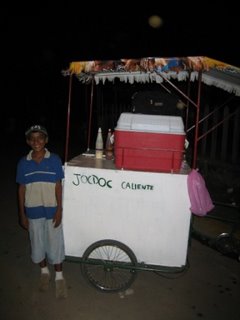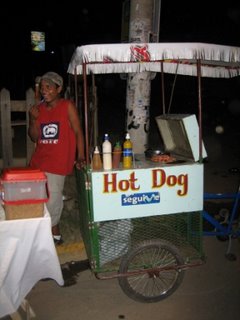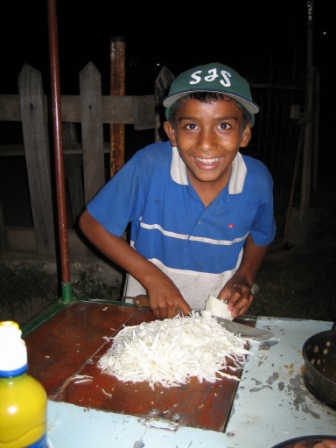Doctor Saul
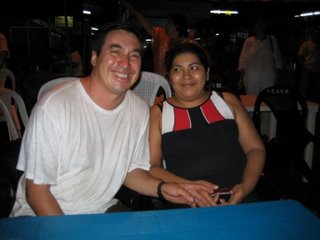 Saul and his Wife
Saul and his WifeTurns out Saul is quite the rebel doctor. He grew up in Guatemala and was a medical student there during the Civil War of the early 1980s. Like most of the idealist university students at the time, Saul got involved in the cause of the anti-dictatorship guerillas. But when the government started killing students for their political involvement, Saul had to flee to Canada. He was just months away from finishing his medical degree. He lived for three years in Canada, and during this time he secretly returned to Guatemala in order to finish medical school. By this time the Sandanistas had come to power in Nicaragua, so Saul decided to put his medical skills to use in a country where the Socialists had emerged victorious. Except for a three year stint in the early 90s when he went to El Salvador to help the guerilla fighters, he’s been in Nicaragua ever since. And he’s devoted his life to providing medical care to the poorest of the poor. He’s now the head of a Nicaragua-based organization called APS (Atencion Primaria a Salud). APS runs health clinics and also trains health promoters to attend the medical needs of people in remote areas where there are no doctors.

"Che" picture on Saul`s Truck
I met Saul at his clinic around 5pm on Thursday evening (Carreterra Norte, from Siemens, one block up). Turns out there were some problems with his truck, but after a bit of pushing we got it to start. Then we swung by his house to pick up his wife as well as a medical student from USC who is volunteering with APS for the summer. The dance performance was in Masaya, a colonial city that’s a forty minute drive from Managua. It was quite the spectacle. Dancers in elaborate costumes and some very lively music. When we arrived it was raining hard in typical tropical fashion. But soon the rain stopped and we sat outside and watched the show. It was a fun time. They invited me to come the next day to attend a health promoter training, but I already had a meeting scheduled at the hospital, so I’m going to go with them next week. I’m looking forward to it.
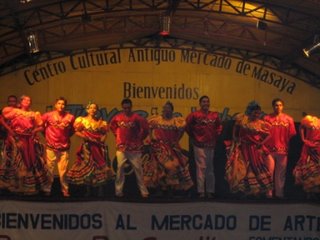
A hazy picture of the dance performance


